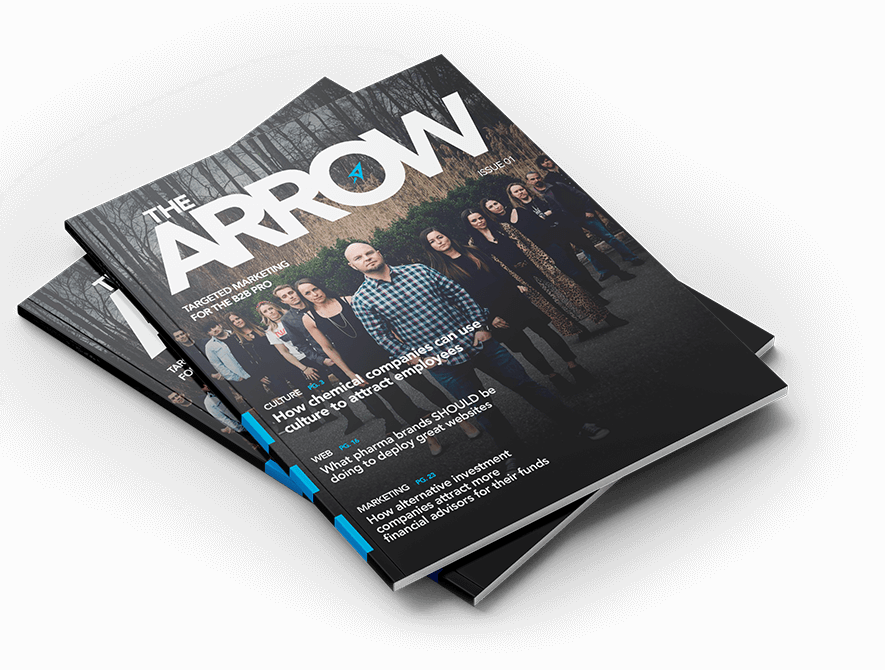How Hospitality Marketing Drives Hospitality Growth with Joe Bezzone
Chris Mulvaney is the CEO of CMDS. I make things... I’m the creative entrepreneur with passion for (re)making brands and inventing solutions to problems no one knows exist.
Marketing in the hospitality industry – a hyper-competitive environment – is no longer an “add-on”—it’s a strategic necessity. It is what sets great developments apart through detailed expert perspectives. In a recent episode of The Arrow Podcast, CMDS CEO Chris Mulvaney spoke with hospitality consultant and real estate advisor Joe Bezzone about how developers can use marketing to bring their properties to life and drive long-term business success.
Bezzone’s 25 years of experience in hospitality development, ranging from boutique hotels to high-rise resorts, gives a clear blueprint of how strong marketing and strategic positioning can transform a location into a destination sought after by many.
Bezzone’s 25 years of experience in hospitality development, ranging from boutique hotels to high-rise resorts, gives a clear blueprint of how strong marketing and strategic positioning can transform a location into a destination sought after by many.
The Overlooked Relationship Between Development and Marketing
Real estate projects often focus heavily on location, finances, and construction, neglecting brand strategy. Through hospitality marketing, developers can define not just what they are building, but why people should care.
Marketing isn’t an add-on—it’s development. Bezzone, who represents owners of big hospitality developments, emphasized aligning sophisticated planning with a solid go-to-market strategy. Real estate developments that launch without an established brand voice or audience positioning are typically the first to collapse when construction is complete.
Creating Brand Equity Through Hospitality Developments
As a builder and developer, Bezzone has been involved in multimillion-dollar properties such as the Rendezvous Tower in Atlantic City and Congress Hall in Cape May. While architectural splendor is present, brand clarity and storytelling – two pillars of real estate marketing – drive actual momentum behind such ventures.
Modern-day hospitality consumers are looking for locations that offer experiences, not just accommodations. The marketing behind these properties is what converts walk-ins into return customers. Bezzone’s recent experience working on The Allison Hotel at Fort Monmouth, for example, involves both rebranding an old building and new construction and investment. Through optimal positioning and branding, the aforementioned property is being introduced to the market for sale with a credible value proposition for investors and tourists alike.
Adapting to a Changing Hospitality Marketplace
While changing consumer patterns and short-term rentals have offered traditional hotels new challenges, demand for good service and design continues to be constant. Bezzone sees innovation not merely in terms of shape, but also in terms of purpose. For example, appliance-ready apartments are now bridging the gulf between residential lifestyles and full-service hotels—offering new opportunities for niche traveler segments to be targeted.
This shift requires more acutely defined real estate marketing strategies, especially for mixed-use developments with hospitality, dining, retail, and entertainment. Marketing in those spaces successfully requires brand definition, segmentation, and digital-first awareness.
Strategic Marketing Fuels Long-Term Growth
To grow, hospitality projects need marketing to extend beyond opening day and sustain visibility, loyalty, and revenue. Hospitality marketing strategies, from online advertising and search engine optimization to content creation and membership models, keep projects top of mind even in over-saturated markets.
Bezzone believes in long-term success through ongoing participation in operations after a project’s completion, allowing the property’s identity and brand experience to be sustained on a consistent basis. This is becoming a more common trend in real estate: blending marketing into every phase of the development process.
What Does Hospitality Marketing Get Right (and Wrong)?
When done properly, hospitality marketing does more than merely attract purchasers or browsers; it fosters brand loyalty. Developers whose marketing aligns with the lifestyle and value priorities of the audience they have targeted routinely outperform those who rely only on location and appearance.
However, many hospitality businesses fall short by not fully understanding the power of storytelling and content strategy. A well-designed environment with no solid brand is easily forgotten, especially in an era where the first impressions are made by the internet.
The Role of Hospitality Marketing for Developers
For developers, marketing is a continuous effort post-launch. Consistent branding and promotion are key to increasing occupancy, bookings, and public engagement. By engaging stakeholders and constantly improving the property experience, developers build long-term value. Revenue-sharing models emphasize marketing as a core function, not simply an expense. Hospitality marketing supports the entire business model, going beyond just selling properties.
Key Considerations for Developers and Owners
- Integrate Brand Early: Define brand identity during site selection to guide development and prevent misalignment.
- Maintain Visibility Post-Launch: Utilize ongoing digital marketing, PR, and social media to sustain momentum.
- Generate Recurring Revenue: Utilize memberships, co-branded events, and community outreach to build loyalty and additional income streams.
- Foster Long-Term Partnerships: Nurture relationships to maintain brand reputation and secure future opportunities.
How CMDS Enables B2B Business Expansion in Hospitality Marketing
For B2B businesses in the hospitality sector, scaling requires more than operational excellence—it demands consistent visibility, strong digital presence, and message clarity. CMDS specializes in helping B2B companies grow through customized marketing strategies built around their unique value propositions.
Whether you’re a commercial real estate developer, property management firm, or hospitality consultant, CMDS supports growth through:
- Website development and optimization that highlights project portfolios and drives qualified leads
- Leadership content marketing and creation to build credibility and trust with stakeholders, partners, and investors
- B2B-focused social media strategy, including LinkedIn outreach and community positioning
- Video storytelling to market your properties and demonstrate thought leadership in an engaging, visually rich way.
Take Your B2B Marketing Strategy to the Next Level
At CMDS, we believe in data-driven marketing strategies that prioritize long-term success. Whether you’re struggling with client acquisition, social media strategy, or brand building, our team is here to help.
Ready to elevate your marketing strategy? Visit cmdsonline.com to learn more!
Listen to The Arrow Podcast for more insights and life lessons that can challenge you to drive innovation and growth in your business.
Frequently Asked Questions (FAQs)
What is hospitality marketing, and why is it essential for B2B growth?
Hospitality marketing refers to the strategies used to attract and retain guests, partners, and investors within the hospitality industry. For B2B companies—such as developers, operators, and consultants—it’s essential for positioning projects, generating high-value leads, and building lasting brand recognition in competitive markets.
How can a marketing agency help commercial real estate developers?
A marketing agency like CMDS helps developers create a cohesive brand, develop high-performing websites, produce thought leadership content, and run multi-channel campaigns that attract investors, partners, and qualified leads.
What marketing strategies are most effective for hospitality businesses?
Top strategies include SEO-optimized website development, brand storytelling, thought leadership content, LinkedIn campaigns, email nurturing, and professional video production. These tools help hospitality businesses generate credibility and remain top-of-mind for decision-makers.
When should a hospitality project begin its marketing cycle?
Marketing should begin at the earliest stage—ideally during site selection or concept development. Early-stage marketing ensures cohesive branding, attracts investor interest, supports municipal approval processes, and lays the foundation for a successful public launch.





